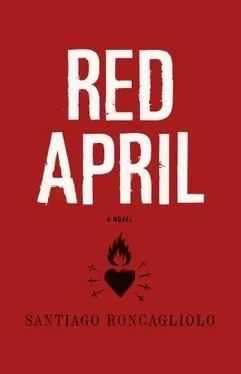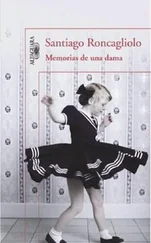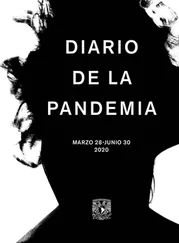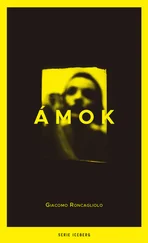“That? That's not electoral advertising. This is an office of the state. It's a photograph of the chief.”
“But the chief is a candidate.”
“Yes, but there he doesn't appear as a candidate but as the president.”
The Associate District Prosecutor — now Provisional Electoral Inspector — promised himself that he would review the relevant clause in the law.
“How many people are going to vote here?”
“Three thousand. Tables will be set up in public school Alberto Fujimori Fujimori.”
“That is the name of the school?”
“That's right. The president founded it almost in person.”
“And do you think we could cover over that name? The law stipulates that electoral advertis …”
“That isn't electoral advertising. That's the name of the school.”
“Of course. Has the training been completed for the poll workers?”
“Yes.” Johnatan Cahuide showed him the registration sheets. “The authority approved two people.”
“Two?”
“That's right, Señor Chacaltana. Most of the poll workers have to travel by mule for two days and bring their family because they don't have anybody to leave them with. And so they don't come. We're lucky if they come on Sunday to vote.”
“But are they informed about the candidates … about their rights?”
“The army boys …”
“The personnel of the armed forces.” The prosecutor corrected him.
“That's right. They go up there and tell the campesinos they have the technology to know who it is they vote for. That is, they'll all vote for the president.”
“But that is … that is false and illegal.”
“Well, yes. They're bastards, those army boys,” replied Cahuide with a mischievous smile.
The prosecutor wondered if the official himself had completed the relevant training courses.
After eating lunch with him, the prosecutor went alone to see the school where the voting tables would be set up. The Alberto Fujimori Fujimori School was small, with two classrooms and a courtyard in the center of the building. There would be two tables in each of the classrooms. He made some notes, but in general he thought the location was adequate. He returned to the street. Since the dogs had been taken down, the village was coming back to life. Campesinos walked by with their tools, and women went down to the river to wash clothes. At times the prosecutor managed to forget about the morning's episode.
When he turned a corner, he bent down to tie his shoe. Out of the corner of his eye he thought he saw the same figure he had glimpsed in the distance as he was approaching the village. A campesino, closer to him now. He turned to look at him, but no one was there. He thought perhaps he had only imagined it. He walked to the corner. Only women were out on the dirt streets of the village.
That night, he returned to his lodgings. When he walked in, the entire family was crowded into the back room, not speaking. The prosecutor's things were where he had left them, intact, beside a woolen blanket.
“Good evening,” he said.
No one answered. He did not know if he should undress in front of all of them. He found it embarrassing. He took off his jacket, tie, and shoes and lay down in his place. It did not take him long to fall asleep. He was very tired. In his dream, his mother was crossing the mountains in the cold sierra night, between enormous bonfires that lit up the countryside. She walked with a sweet gaze and a smile filled with peace. She seemed to be approaching her son, who waited for her with open arms. But when she was very close, she turned away. She began to walk toward one of the fires. Félix Chacaltana ran to stop her, but it was as if he were running in place, not moving forward, while she approached the flames without losing her smile. He shouted, but she did not turn around. He felt tears rolling down his cheeks as she walked closer to the bonfire. It seemed to him that his tears were made of blood, like the tears of the Virgins. When she placed her foot on the flames, he heard the explosion.
He sat up in a sweat, his heart pounding. He supposed the explosion had been part of his dream. He turned toward Teodoro's family, who had not moved from their corner. When his eyes grew accustomed to the darkness, he saw them looking at him, crouching in their corner like frightened cats. They were not asleep. Perhaps they had not been asleep all night. He wondered if he might have called out during his nightmare.
He turned toward the wall and tried to go back to sleep, but he heard noises, echoes, distant shouts. The sound seemed to come from everywhere but remain distant. He tried to understand what they were saying. The tone of voice, the timbre, sounded familiar. Then he heard the second explosion.
The family had not moved from their place.
The prosecutor stood up:
“What is going on?”
No one in the family replied. Huddled together, this time they gave him the impression of a nest of snakes. The prosecutor began to lose patience.
“What is going on?” he shouted, picking Teodoro up by his shirt. He felt the man's alcohol breath on his face. Teodoro began to speak in Quechua. His voice sounded like a lament, as if he were apologizing for something.
“Talk to me in Spanish, damn it! What is going on?”
The quiet lament continued. His wife began to cry. So did the children. Félix Chacaltana let Teodoro go and went to the window. There was fire in the mountains. Lights. The image of his mother was fixed for a moment in his mind. He opened the door and went out. Now he heard the shouts more clearly. They were the same shouts he had heard many years before, on the bus that had taken him to Ayacucho. Slogans. Enormous bonfires topped the mountains at each of the cardinal points. Up above, just behind him, the figure of the hammer and sickle outlined in fire hovered in the night over the village.
The prosecutor ran to the police station. No one passed him in the street. Not even any people looking out the windows. The houses seemed like mass graves, blind, mute, and deaf to what was happening in the hills. He reached the station and pounded on the door:
“Aramayooooo! Aramayoooo! Open up!”
No response. Only howls from the hills. Long Live. The Communist Party of Peru. President Gonzalo. They seemed to grow louder and surround him, suffocate him. He wondered if the terrorists would come down and where he would hide if they did. He beat on the door again. Finally it opened. The five policemen and the lieutenant were inside. The lieutenant's shirt was open and he held a bottle of pisco in his hand. The prosecutor walked in shouting:
“It's an attack, Aramayo! They're all around us!”
“We've seen it, Señor Prosecutor,” the police officer responded calmly.
His passivity hurt Chacaltana more than the shouts from the mountains. He grabbed him by the front of his open shirt, just as he had grabbed Teodoro earlier.
“And what are you going to do! Answer me! What are you going to do!”
The lieutenant did not lose his serenity:
“Chacaltana, let me go or I'll smash your face in.”
Chacaltana became conscious of his hysteria. He released the police officer, who offered him some pisco . The rest of the police were on the floor, petrified, holding their weapons. They were so young. Outside, the shouts continued. The hammer and sickle were reflected in the window of the police station. Chacaltana took a drink, returned the bottle, and collapsed into a chair. He apologized. Aramayo walked slowly and deliberately to the window.
“The show's ending,” he said. “They'll start to quiet down.”
Chacaltana buried his face in his hands.
“Is it always like this?”
The lieutenant took another drink from the bottle.
Читать дальше












